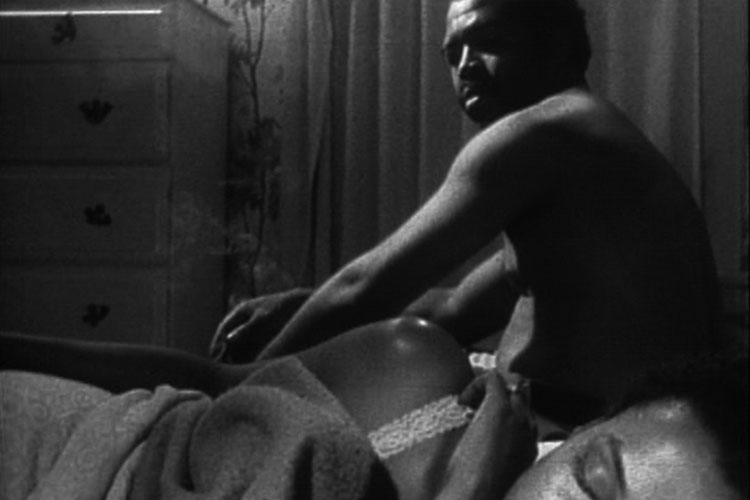You are here
Bless Their Little Hearts

Bless Their Little Hearts represents the closure and pinnacle of a neorealist strand within what’s now described as the L.A. Rebellion, which dates to Charles Burnett’s Several Friends (1969). Billy Woodberry’s film chronicles the devastating effects of underemployment on a family in the same Los Angeles community depicted in Killer of Sheep (1977), and it pays witness to the ravages of time in the short years since its predecessor. Nate Hardman and Kaycee Moore deliver gut-wrenching performances as the couple whose family is torn apart by events beyond their control. If salvation remains, it’s in the sensitive depiction of everyday life, which persists throughout.
By 1978, when Bless’ production began, Burnett, then 34, was already an elder statesman and mentor to many within the UCLA film community, and it was he who encouraged Woodberry to pursue a feature length work. In a telling act of trust, Burnett offered the newcomer a startlingly intimate 70-page original scenario and also shot the film. He furthermore connected Woodberry with his cast of friends and relatives, many of whom had appeared in Killer of Sheep, solidifying the two films’ connections.
Yet critically, he then held back further instruction, leaving Woodberry to develop the material, direct and edit. As Woodberry reveals, “He would deliberately restrain himself from giving me the solution to things.” The first-time feature director delivered brilliantly, and the result is an ensemble work that represents the cumulative visions of Woodberry, Burnett and their excellent cast.
Whereas Burnett’s original scenario placed emphasis on the spiritual crisis of Hardman’s Charlie Banks, the then-married Woodberry, alongside Moore and Hardman, further developed the domestic relationships within the film and articulated the depiction of a family struggling to stay alive in a world of rapidly vanishing prospects.
In retrospect, the film’s ending can be seen as a spiritual goodbye not just for Banks, but for Burnett, who would move away from his neorealist work with his next film, the classic To Sleep With Anger (1990); for Woodberry, who moved into documentary; and for Hardman, who left cinema shortly after. The film remains an unforgettable landmark in American cinema.
—Ross Lipman
Restored from the original 16mm b/w negative A/B rolls and the original 16mm optical soundtrack by UCLA Film & Television Archive. Laboratory services by Stanford Theatre Film Laboratory, Audio Mechanics and NT Picture and Sound.
Film Credits
| Individual | Role(s) |
|---|---|
| Billy Woodberry |
Director Producer Editor |
| Charles Burnett |
Writer Cinematographer |
| Nate Hardman | Cast |
| Kaycee Moore | Cast |
| Angela Burnett | Cast |
| Ronald Burnett | Cast |
| Kimberly Burnett | Cast |
To report problems, broken links, or comment on the website, please contact support
Copyright © 2025 UCLA Film & Television Archive. All Rights Reserved






 Mobile Navigation
Mobile Navigation

